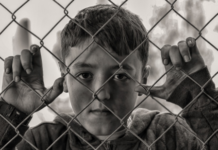Having a baby is a deeply personal experience where ideally, both parents actively decide to make preparations for the coming of new life. The reality remains that such a joyous moment can sometimes be overshadowed by an unplanned or unwanted pregnancy. In these cases, thousands of women are faced with the painfully emotional decision of terminating their pregnancies for deeply personal and logistical reasons. Despite growing numbers of young children in the foster care and adoption system–and an even larger amount of older children remaining in foster care– the Trump administration is continuing to push for the banning of fetal termination, calling for a holy war against women.
The pressure has only worsened from some Iowa women, following the passing of the “heartbeat bill,” late Tuesday. The bill bans the abortion of fetuses at or above the 6-week mark, a time frame in which most women experience little to no symptoms. The bill is currently awaiting for the approval of Republican Governor Kim Reynolds, who has previously voiced support of anti-abortion initiatives. The governor has yet to hint towards her eventual decision, however the bill offers exceptions to the mandate for women under extenuating circumstances such as victims who have fallen pregnant after a sexual assault. Needless to say, the bill still poses a huge problem for women who are financially unstable, underaged mothers, have recently lost a spouse, or is simply unable to care for a child due to reasons justified by her own volition.
Women elsewhere are also beginning to experience the effects of Trump’s attempt to dismantle reproductive rights in the form of his January 2017 Executive Order. Unlike domestic attempts to suppress pro-choice on a state and federal level, the order is far more devastating and far-reaching.
President Trump’s Executive Order vowed to stop aid to international agencies which provide abortion services in areas like Kenya, Madagascar, Senegal, and Pakistan– places where contraceptive and sexual education is widely unavailable or inaccessible. However, the full effect of the order will not be felt until September of this year, although funds for other services such as reproductive and mammary health have already stopped. Kenya’s oldest sexual and reproductive health clinic Family Health Options Kenya, (FHOK) has already lost $65,000 in Aids Relief, and an additional $1.5M in additional funds to maintain withstanding projects, due to the fact that FHOK also provides abortion services.
Pushback of anti-abortion legislation has already begun domestically, although a solution to the crisis overseas in not yet underway. South Carolina senators voted 30-11 to dismiss a proposal to ban “dismemberment abortions” despite ongoing debate. The method requires that an abortionist remove pieces of the fetus, to allow for a more pain-free experience for the woman, who is not heavily sedated during the procedure.
Although some claim that the practice is barbaric, in some cases, it has given women a chance at motherhood at a later point in life.










